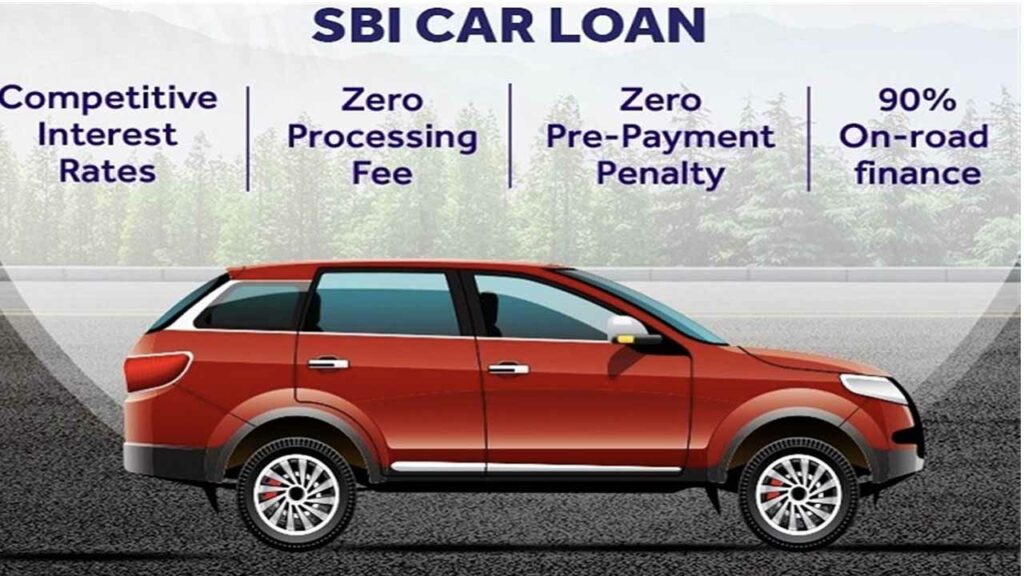Are you considering getting a new car while dealing with an existing auto loan? In this blog post, we’ll provide you with a comprehensive guide on how to transfer your car loan to another person. Imagine this scenario: You’ve set your sights on a brand-new, attractive vehicle, but there’s still an ongoing car loan attached to your current one. This is where the concept of transfer of car loan to another person comes into play. Yes, it is indeed possible to pass the responsibility of your vehicle’s loan to someone else.
The typical solution would involve paying off the loan before selling the car. However, what if this isn’t feasible upfront? That’s when the option to transfer the loan to another person comes into play. Curious about the process of transferring an auto loan? No need to fret; we have you covered. From grasping the intricacies of the car loan procedure to mastering the steps required for transferring the vehicle loan to a new owner, we’ve got all the information you need.
You may also like: Which is Best Audio System for Car in India 2023?
Transferring Your Car Loan: A Step-by-Step Guide
The process of transfer of car loan encompasses several steps, which include assessing the new borrower’s creditworthiness and facilitating the transfer of registration and insurance. With careful adherence to these steps and effective communication with your bank, you can smoothly navigate the car loan transfer procedure in India. It’s essential to bear in mind that different banks may have their specific requirements. Therefore, it’s crucial to stay informed and adequately prepared throughout the process. While it might appear daunting, here’s a detailed breakdown of how you can go about transferring your car loan in India:
Step 1. Review Your Loan Agreement
- Start by examining your loan agreement to determine if a loan transfer is permissible.
- If you’re uncertain, reach out to your bank for clarification.
- Be aware that some loans may not be transferable.
Step 2. Find a Willing New Borrower
- Seek out an individual willing to assume both the loan and ownership of the car.
- Research prevailing used car market rates to establish a competitive selling price.
- Keep in mind that including the loan in the sale may affect the car’s selling price.
Step 3. Evaluate the Borrower’s Creditworthiness
- Ensure that the prospective borrower possesses a steady income and a favorable credit score.
- Their credit history should demonstrate responsible loan and debt repayment.
Step 4. Explore Car Dealerships
- If you encounter difficulties in finding a buyer, consider approaching car dealerships.
- Dealers often have networks for purchasing used vehicles.
Step 5. Transfer Car Registration
- In addition to the loan documents, remember to initiate the transfer of car registration.
- Visit the Regional Transportation Office (RTO) to commence this procedure.
- Please exercise patience, as the process may take up to two weeks for completion.
Step 6. Address Insurance Considerations
- Ensure that the new borrower meets the insurance requirements.
- Coordinate with your car insurance provider to facilitate the policy transfer.
- Submit the necessary bank documents to the insurer to effect any required changes. This helps prevent unnecessary premium payments.
Step 7. Submit the Required Documents
Prepare and provide the following documents:
- Proof of identity (ID proof)
- Proof of address (address proof)
- Evidence of income
- Loan transfer request form
- Any additional documents requested by the bank
Step 8. Account for Associated Charges
Be aware that banks may levy processing and transfer fees. These charges can vary based on the remaining loan tenure and principal amount. Consult with your lender to gain clarity on the associated costs.
You may also like: How to File a Complaint Against an Incorrectly Issued Traffic Challan

Charges for Transferring Car Loan
The fees associated with transferring a car loan within India can fluctuate based on the lending institution, the state, and the loan amount. It’s crucial to thoroughly assess all the expenses before proceeding with a car loan transfer. Below, we’ve outlined some of the prevalent charges that you may encounter when transferring a car loan in India:
- Loan Transfer Fees
These fees are imposed by the lending bank to handle the loan transfer request Typically non-refundable, even if the transfer isn’t completed The amount varies among banks but typically falls between ₹500 and ₹1,000
- Stamp Duty
A government tax applied to property transfers, including cars Varies by state but generally ranges from 3% to 5% of the loan amount
- RTO Charges
Charges assessed by the Regional Transport Office (RTO) for car ownership transfer Amount varies by state but is typically around ₹300 to ₹500 For additional details: RTO Charges for Car Registration
- Miscellaneous Charges
Beyond the mentioned fees, there could be other expenses associated with a car loan transfer These might encompass legal fees, new loan processing charges, and insurance premiums
The table that we have below sums up all the charges for transferring a car loan in India:
| Fee | Description | Amount |
| Loan Transfer Fees | To be paid to the lending bank | Rs 500-1,000 |
| Stamp Duty | To be paid to the Government | 3%-5% of loan amount |
| RTO Charges | To be paid to the RTO | Rs 300-500 |
| Legal Fees | To be charged by a lawyer | Not fixed |
| Processing Fees for the New Loan | To be charged by lending bank | Not fixed |
| Insurance Premium | To be payable for new insurance policy | Not fixed |
You may also like: How to Keep Rats and Rodents Away from Car in Just Rs 10?
Consider Below Recommendations for Easy Car Loan Transfer in India:
- Seek Bank Approval: Ensure your bank approves the loan transfer feasibility before proceeding.
- Find an Eligible Buyer: Look for a buyer who meets your bank’s criteria or explore dealership options.
- Confirm with RTO and Insurer: Verify with the Regional Transport Office (RTO) and insurance provider that the transfer can proceed.
- Lender Consent: Obtain consent from your lender to initiate the ownership transfer.
- Legal Ownership Transfer: Follow all required legal processes to transfer ownership properly, avoiding future issues.
- Insurance Policy Transfer: Transfer the car’s insurance policy to the new owner for continuous coverage.
- Pre- and Post-Transfer Inspection: Inspect the car thoroughly before and after the transfer to note any damage and prevent disputes.
- Maintain Vehicle Condition: Ensure the car stays in good condition during the transfer process to avoid complications.
- Settle Pending Dues: Clear any outstanding dues, such as pending EMIs or taxes, before initiating the transfer.
- Accurate Documentation: Fill out all necessary forms accurately and submit them to the relevant authorities.
- Update Traffic Authorities: Notify local traffic authorities of the ownership change to update records.
- Inform Your Insurance Provider: Inform your insurer about the transfer and update the policy with the new owner’s details.
- Check for Outstanding Loans: Ensure the buyer has no outstanding loans in their name that could affect the transfer.
- Create a Detailed Agreement: Establish a comprehensive agreement with the buyer, outlining sale terms and conditions.
What We Think
Keep in mind that thorough preparation and effective communication are your key allies in this process. Prior to initiating the car loan transfer, obtain approval from your bank, find a qualified buyer, and ensure all legal requirements are met. By meticulously following these steps, from verifying transfer feasibility to completing the ownership and insurance transfer, you’ll smoothly navigate the process!
You may also like: How to Fix Car Glass Scratches at Home?
FAQs
A: Yes, you can prepay or foreclose your car loan. Most banks allow this prepayment of car loan.
A: To transfer car loan to other person, you need to take permission from bank, find a buyer that meets the bank’s eligibility criteria,
A: Advantages of transferring a car loan are transfer of loan burden, benefitting from better loan terms, and making the entire car sale prices easier.
A: One potential risk to be aware of is the possibility of the new borrower defaulting on the loan. In such a scenario, you may still be held responsible for the loan, which could negatively affect your credit score.
A: The cost of car loan transfer differs from bank to bank. Common charges include processing fee and documentation charges.
A: In case the borrower defaults the car loan, you might need to continue payments to avoid damaging your credit score.
A: You can talk to local dealers, online platforms or through personal contacts for finding a suitable buyer.
A:Effective methods for selling a car with an outstanding loan involve either clearing the debt before the sale or conducting a documented loan transfer, all while verifying the financial reliability of the buyer.


